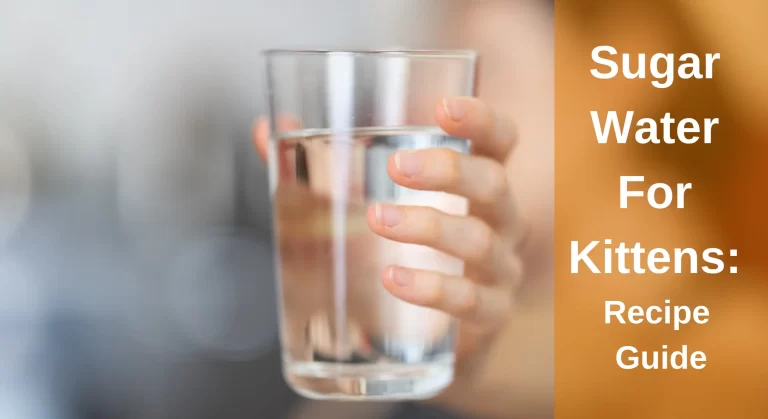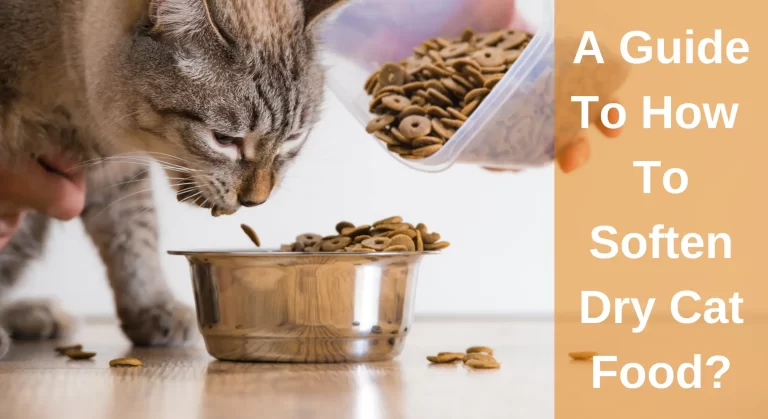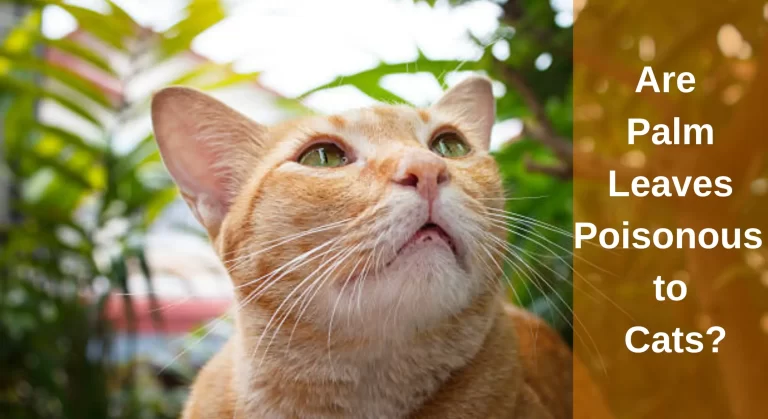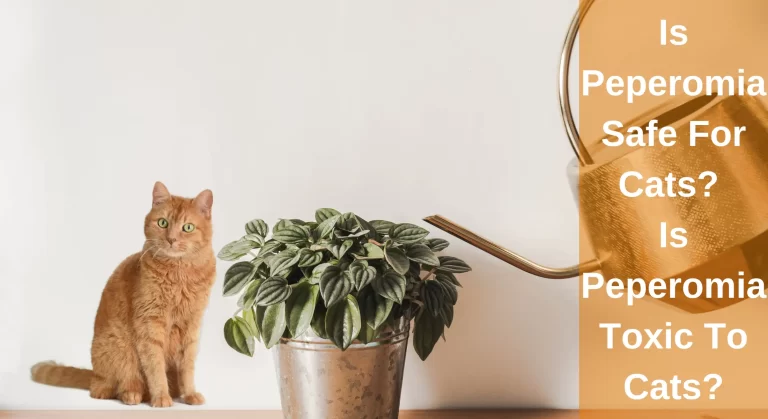Can Cats Eat Beef Jerky? Is it Safe – Everything You Need to Know
Human diets have included jerky as a mainstay for thousands of years. Different civilizations have different processes and techniques for curing as well as drying meat such techniques can preserve meat for a longer period of time.
Jerky used to be a necessity, but modern jerky—especially beef jerky—has transformed into a delectable savoury treat. But even if it’s good for humans, can cats eat beef jerky? They can, but it wouldn’t be a good idea.

Can Cats Consume Beef Jerky?
You might be wondering if your cat would like munching on this tasty treat, as beef jerky has long been a popular human snack. Consider cat jerky. Do they like the flavor as much as we do? The key question is, Is it safe or not?
Because of the cat’s diet (meat), many cat owners instantly assume that anything made of meat is a great treat for cats, and they may very well like the flavor of this mouthwatering treat. But you shouldn’t give your cat beef jerky all the time since it might be harmful or, in the worst case, poisonous!
Although cats frequently consume fresh wild meat, it is not at all like this cured and well-preserved meat, even if beef jerky is formed of flesh. In this essay, I’ll explain why this matters and how eating beef jerky can seriously harm one’s health.
Also Read: Can Cats Eat Pork?
Reasons Why Shouldn’t Cat Eat Beef Jerky?
Although you can occasionally feed beef jerky to your cat, there are better and safer ways to take care of your pet. If you ask any veterinarian, they will advise against giving your cat any beef jerky at all.
You might be surprised by this given that jerky is made from meat, which makes up the majority of a cat’s natural diet. The meat that cats eat in the wild, on the other hand, is in its most natural form and is often eaten by mice and birds, as opposed to jerky meat, which is more processed and artificial.
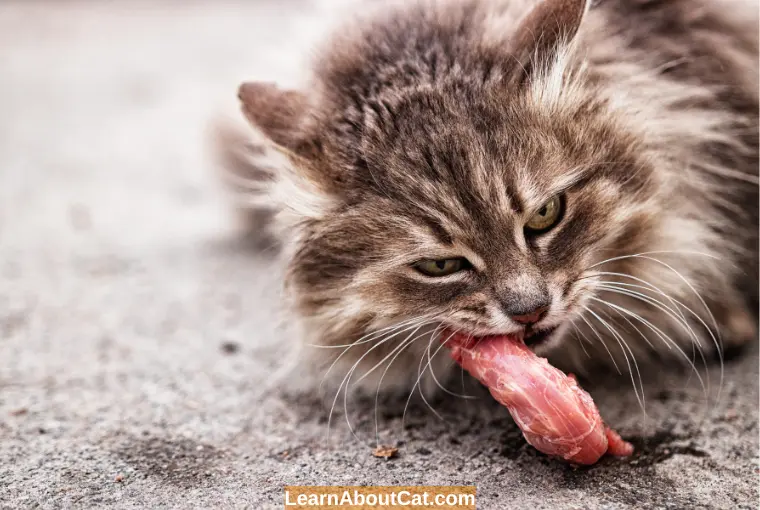
1. Full of Preservatives
The shelf life of meat is increased by adding salt in addition to other flavours since salt is a more natural preservative. When making and preparing beef jerky, sodium nitrite is usually used in addition to salt. This chemical minimises the risk of bacterial infections and kills any meat-contaminating microorganisms.
2. Additional Flavourings
Some of the most popular flavours are teriyaki, sweet and smoky, and even sriracha, which is quite hot. So, are cats able to consume flavoured jerky like teriyaki beef jerky?
Sadly, they are unable to do so since flavouring jerky is riskier! The issue with seasoned beef jerky is that it frequently contains substances like spices, garlic as well as onions that are particularly dangerous to cats.
Check Out: Can Cats Eat Cake?
3. Garlic
It is the food that does the greatest harm, even in small amounts as it contains substances such as thiosulphates and disulfides that weaken and destroy cat red blood cells.
4. Plenty of Salt
Have you ever eaten a lot of beef jerky and then reached for a glass of water because you were so thirsty? This is because jerky contains a lot of salt, so after your cat eats some jerky, it’ll need to drink something cold to satisfy its thirst.
The major electrolyte in the body and the component of salt, sodium, aids in controlling the fluid balance in our cells. Consuming meals high in sodium causes your body to lose water through osmosis, which aids in replenishing the sodium concentration across the cell membrane. Dehydration occurs as a result of this water loss, which increases our thirst.
Humans do experience this increase in thirst, but our bodies are designed to absorb the salt in our meals and restore balance to the body. A cat, on the other hand, is unable to absorb any sodium since salt is not found in any of its natural dietary sources.
A lot of high-sodium beef jerky may make your cat dehydrated owing to the high salt content, and it may also poison them with sodium ions.
5. Slick Surface
It’s tough to chew beef jerky because of its often described leathery or rubbery texture. The most common kind of jerky is hard and dry because it may get gradually moisture as you chew and finally begins to break down, which many people find delightful.
However, this rubbery texture poses a special threat to cats. The texture of hard jerky is quite different from that of regular cat food, whether it be wet or dry kibble. As a result, cats commonly consume beef jerky before finishing it. Your cat might suffocate and even die if you aren’t there to watch over it.
6. Silica Gel
And third, little amounts of silica gel packets are commonly included in beef jerky containers. Silica gel is necessary to maintain the beef jerky’s hard, dry texture since it takes in moisture from the air.
The fact that this little package of silica gel is not food and therefore to be thrown away is known to humans. Cats might try to eat this though because it smells like the jerky that was in the packet with it. Cats cannot read, so even if the package specifically says “do not eat,” this is of little use to them.
If silica gel packets are accidentally swallowed, your cat may probably experience nausea, vomiting or diarrhoea. It is not harmful to cats, according to the ASPCA, and shouldn’t have any long-term detrimental effects on them. However, if your cat is a kitten, a little cat, or if it manages to get its paws on many of these tiny bags, take it to the vet right once.
Do Cats Like Beef Jerky?
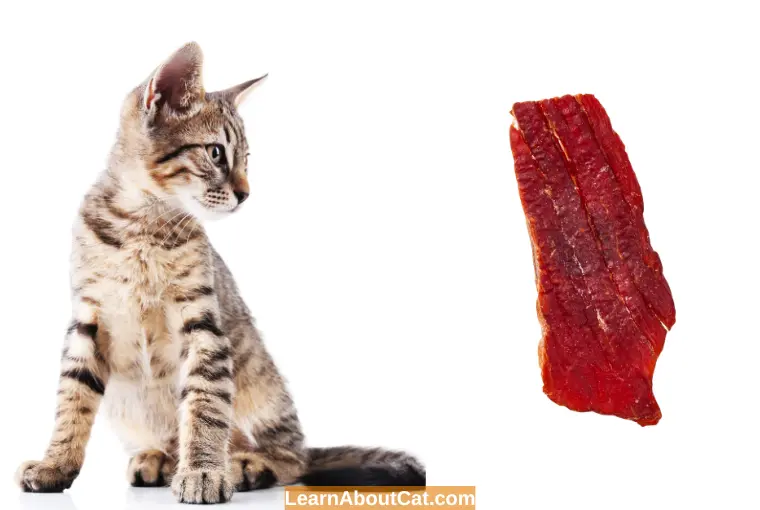
Regarding flavour, there is no doubt that cats will like eating beef jerky.
Cats are what are known as obligate carnivores, which means they exclusively ingest animal protein. They cannot produce them on their own and cannot receive them from their diet in any other way. If cats don’t consume specific types of meat, they won’t acquire all the nutrients they need to flourish.
As a result, cats have evolved to have a natural affinity for meat. It is delicious to taste and smell! Making meat taste and smell good encourages cats to eat it and ensures they get all the nutrients they need from their diet.
Unfortunately, the idea of curing and keeping meat in a dried form to increase its shelf life is a comparatively new one, in contrast to the thousands of years that cats have been developing. Therefore, despite the fact that cured meat is bad for cats, they keep being drawn to it!
This shouldn’t come as a surprise to you because cats usually seek out bad food. Let’s use whipped cream as an example. Can cats eat whippet? No! Cats still enjoy the flavour, though, and if given the chance, they would meow for it. In order to avoid giving in to your cat’s pleas for a piece of jerky, you should try to resist and treat them better.
Find Out: Can Cats Eat Cantaloupe?
What Happens if My Cat Consumes Beef Jerky?
Typically, your cat shouldn’t experience any issues if they consume a little amount of beef jerky.
Due to their digestive issues, cats that accidentally eat beef jerky may develop nausea, vomiting, and diarrhoea.
When in doubt, consult your veterinarian to determine the best course of action.
What Alternatives to Beef Jerky are there?

You’ll probably concur that it’s preferable to avoid giving your cat beef jerky. However, if you must, be sure to:
- Choose flavourless, flexible jerky.
- Keep the silica gel container out of reach.
- To prevent choking, keep an eye on your cat as it eats.
- Maintain a large dish of water nearby in case they become thirsty.
- Only give a small amount at once to prevent salt poisoning.
Having said that, it’s not a good idea to give your cat beef jerky. In fact, there are a number of wonderful solutions that won’t endanger children but that they will still like.
1. Natural, Low-Fat Meats
You can give your cat human food if you want to have a meal with them, but you can’t just feed them any food; it needs to be equivalent in nutritional value to the meat they often eat, which is typically lean, low-fat meat.
For a healthy and safe snack, lean-cooked beef, chicken, or turkey are wonderful options. But can cats eat hot dogs? No! This meat is fatty and heavily processed, making it bad for your cat. It is critical to realise that not all meat is created equal and to choose healthy meat options.
2. Homemade Jerky
Making your own homemade jerky is an additional choice that is safer and better for cats. It’s quite easy to make tuna jerky, and your cat will like it.
The tuna only has to be drained of its water, spread out on a tray, and the flakes separated just enough to keep them in bite-sized pieces. All that’s left to do is microwave it for three to five minutes while covering it with a paper towel. When the timer goes off, the tuna will feel wonderful and jerky-like since it was a little dehydrated, stiffer, but still flexible.
3. Cat Jerky Food
The majority of pet supply stores provide cat jerky treats. But wait, if beef jerky snacks are so harmful to cats, can they still eat them? Thankfully, yes! Cats may still like the flavour and texture of beef jerky even though they need a different version.
As opposed to conventional beef jerky, cat-specific jerky snacks won’t include any salt, additives, or preservatives that are harmful to cats. They also don’t include any flavourings that are dangerous or toxic.
Jerky-based treats may be tolerable for cats due to their texture. Compared to conventional beef jerky for people, they have a special texture that is soft and natural, which makes it simpler to chew and significantly lowers the danger of choking.
4. Canned Fish
Fish may be a tasty and healthy treat for your cat if it is cooked properly. Fish has a lot of healthy, naturally occurring oils that might give you a beautiful, shiny coat and make food taste delicious. Several important vitamins are missing from fish, so use caution when feeding them to your cat.
Fish in cans is another fantastic option, but it must be canned in water and not oil or brine. Causing your cat to canned tuna in brine has the same risk of giving them sodium poisoning as giving them jerky since brine is an extremely salty chemical. However, the oil contains a lot of fat and could be hard for your cat to digest.
Interesting Read: Is Coconut Oil Safe For Cats?
How should I feed My Cat Beef Jerky?

Simple beef jerky is hard to come by. Some added flavour, such as teriyaki, peppered, or jalapeno, is always present. You might find them appetising, but your cat might not. When it comes to excessive additives in beef jerky, garlic is the primary culprit. Garlic is toxic to cats and can even be lethal in high doses, according to studies.
1. Cats are Prone to Beef Allergies
Cats can have allergic responses just like people do. And meat is one that cats appear to consume often. You’ll know right away if your cat has allergies. They’ll start losing their hair, itching a lot, and developing red, irritated skin.
2. Jerky Is High in Sodium
Meat and salt make up beef jerky in its purest form. Salty condiments like soy sauce or Worcestershire sauce are often used to preserve beef jerky. If a cat consumes too much salt, it might become poisoned.
This is a really important problem. First off, a salt overload might lead to dehydration. Your cat will start displaying symptoms of acute thirst. Serious incidents might lead to irreversible renal damage or even worse.
Also, Check Out: Can Cats Drink Ice Water?
3. Packets of Silica Gel
Have you ever unwrapped a beef jerky box to find a little envelope bearing the words “DO NOT EAT”? There is silica gel. Silica gel is a desiccant or substance that absorbs moisture from its environment. It is used in a variety of residential and professional settings, including food preservation. The silica gel in your beef jerky keeps it dry and fresh.
Should you Give Your Cats Beef Jerky?
If your cat accidentally ingested a tiny amount, she should be fine. But it doesn’t mean you have to feed her all the time. Think about how much sodium is diluted based on your size and weight compared to how much sodium is diluted based on the size and weight of your cat. It is therefore easy to see why some food that is fine for you could not be okay for your cat to eat.
Instead, go for something a little more cat-friendly, such as dried fish or cat-specific nibbles. A content cat is, after all, a healthy cat.
Why should Cats Not be Served Beef Jerky?
Even though a small quantity of beef jerky may be safe for your cat to eat, there are numerous ingredients in it that might be harmful to cats. For these reasons, you ought to pause before consuming any beef jerky from your cat.
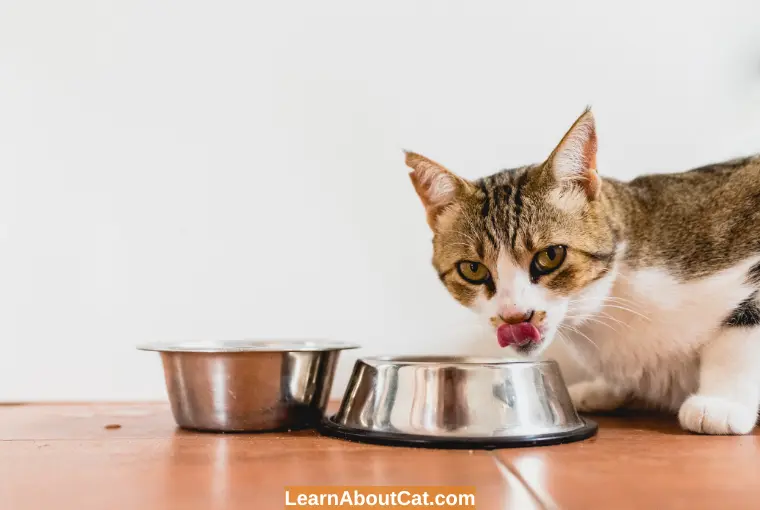
1. Salt
Salt is also used to season jerky marinades and to help prevent the growth of germs when jerky is being made. The salt level of store-bought jerky is typically excessive.
The majority of the salt that your cat eats every day probably comes from their cat food. More salt in their meals can cause them to become dehydrated, and if they consume enough jerky, their bodies may become poisoned with sodium.
2. Sugar
In the marinades of some jerkies, including teriyaki jerky, sugar is used as an extra sweetener. Humans like sweet flavours, whereas cats lack the taste receptors to appreciate them.
The sugar won’t make your cat sick, but it could gain weight. Sugar will also increase blood sugar levels, so you must be careful if you have a diabetic cat.
3. Rugged Texture
Although the meat is dried to preserve it, the drying process also makes the flesh tough. Your cat has considerably smaller teeth that are better adapted for breaking up fresh meat from tiny birds and rodents, whereas humans may find it difficult to chew on jerky.
Your cat may find the solid meat challenging to chew because they are used to eating cat food that has a softer consistency, especially if there is a large portion. On a big piece of tough jerky, your cat might suffocate. If your cat has dental issues or tooth decay, chewing on the tough meat might injure them.
4. Preservatives
On occasion, sodium nitrate is added to salt to preserve the meat. Although it is unlikely that your cat will consume enough beef jerky to make the sodium nitrate deadly, the substance has been documented to kill cats.
5. Flavourings
Several elements to consider include:
1. Spices
Capsaicin, which is included in cayenne, chilli, and jalapeno peppers, is likely to cause gastrointestinal distress in cats. They could even pass out if the jerky’s flavour is too strong.
2. Garlic and Onion powder
Two common ingredients for jerky are garlic powder and onion powder. The allium family, which includes both garlic and onions, is poisonous to cats. They are also more powerful in powder form.
Your cat might die if they consume enough onion and garlic powder-seasoned beef jerky.
6. Allergies to Animals
Your cat can have a beef allergy and its symptoms are analogous to mild allergic reactions in people, including inflamed and itchy skin. Your cat may, however, become ill and vomit, throw up, or experience diarrhoea if they consume beef and have an allergy to it.
7. Bad activities
Last but not least, as it could encourage poor eating habits, you might wish to refrain from offering your cat beef jerky. Your cat may develop a habit of what you are eating if you frequently let them nibble on your food or eat off your plate.
This behaviour can get bothersome when your cat tries to get food from your plate or even a guest’s plate. Or if they pounce on you, run to your feet, and start purring every time you walk into the kitchen.
They could choose human food instead of cat food, which would deprive them of the necessary nutrition. Given enough human meals on a regular basis, might perhaps cause health issues including weight gain, indigestion, etc.
Frequently Asked Questions
The Bottom Line Can Cats Eat Beef Jerky
You shouldn’t give beef jerky to your cat when you’re attempting to treat it as It contains a lot of salt despite being made from beef and having a low-fat content, which can cause dehydration or, in the worst cases, sodium poisoning. In addition to the flavours and flavours that have been added, jerky’s coarse texture and preservative levels put cats in danger of choking.
If you do want to offer your cat beef jerky, only give them a tiny piece at a time, and only pick the soft, delicate versions made without flavourings or preservatives. However, it’s recommended to give your cat jerky treats as a replacement. These treats are a wonderful and delicious substitute without the risks because they were developed with cats in mind. Other wonderful options are handmade jerky snacks, lean meat, and grilled seafood.
Who is Isabella?
My name is Isabella, and I am a dedicated and knowledgeable cat enthusiast. With years of experience caring for cats and a deep love for felines, I made a mission to help other cat lovers navigate the challenges of cat ownership.


